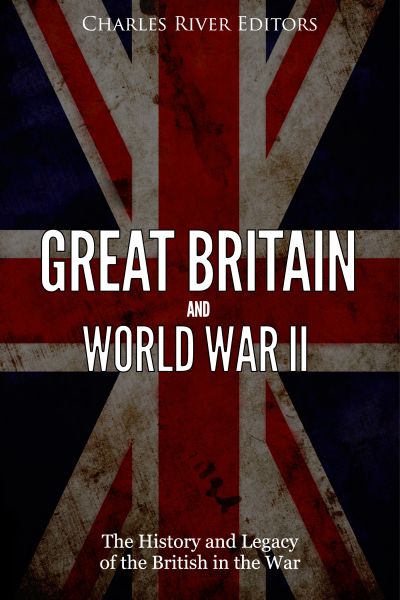Great Britain and World War II
The History and Legacy of the British in the War
"My good friends," the mustached, bony man with thick eyebrows and large, strong teeth somewhat reminiscent of those of a horse, shouted to the crowds from the second-floor window of his house at 10 Downing Street, "this is the second time in our history, that there has come back to Downing Street from Germany peace with honor. I believe it is peace for our time." (McDonough, 1998, 70). The man addressing the crowd, British Prime Minister Neville Chamberlain, had just returned from the heart of Nazi Germany following negotiations with Adolf Hitler, and the crowd gathered outside the English leader's house on September 30, 1938 greeted these ringing words with grateful cheers. The piece of paper Chamberlain flourished exultantly seemed to offer permanent amity and goodwill between democratic Britain and totalitarian Germany. In it, Britain agreed to allow Hitler's Third Reich to absorb the Sudeten regions of Czechoslovakia without interference from either England or France, and since high percentages of ethnic Germans – often more than 50% locally – inhabited these regions, Hitler's demand for this territory seemed somewhat reasonable to Chamberlain and his supporters. With Germany resurgent and rearmed after the disasters inflicted on it by the Treaty of Versailles following World War I, the pact – known as the Munich Agreement – held out hope of a quick end to German ambitions and the return of stable, normal international relations across Europe.
Of course, the Munich agreement is now notorious because its promise proved barren within a very short period of time. Chamberlain's actions either failed to avert or actually hastened the very cataclysm he wished to avoid at all costs. The "Munich Agreement" of 1938 effectively signed away Czechoslovakia's independence to Hitler's hungry new Third Reich, and within two years, most of the world found itself plunged into a conflict which made a charnelhouse of Europe and left somewhere between 60-80 million people dead globally.
Many people hailed Chamberlain's "success" at defusing Nazi aggression by handing over Czechoslovakia tamely to Hitler's control, but others remained dubious. Édouard Daladier, the French prime minister, "later told Amery that he turned up his coat collar to protect his face from rotten eggs when he arrived in Paris." (Gilbert, 1963, 179-180). A Foreign Office man, Orme Sargent, was disgusted, and he later said bitterly, "For all the fun and cheers, you might think they were celebrating a major victory over an enemy instead of merely the betrayal of a minor ally." (Gilbert, 1963, 180). Winston Churchill, the deal’s most famous critic, bitterly remarked, “England has been offered a choice between war and shame. She has chosen shame, and will get war.”
Europe’s attempts to appease him, most notably at Munich in 1938, failed, as Nazi Germany swallowed up Austria and Czechoslovakia by 1939. Italy was on the march as well, invading Albania in April of 1939. The straw that broke the camel's back, however, was Germany's invasion of Poland on September 1 of that year. Two days later, France and Great Britain declared war on Germany, and World War II had begun in earnest.
Of course, as most people now know, the invasion of Poland was merely the preface to the Nazi blitzkrieg of most of Western Europe, which would include Denmark, Belgium, and France by the summer of 1940. The resistance put up by these countries is often portrayed as weak, and the narrative is that the British stood alone in 1940 against the Nazi onslaught, defending the British Isles during the Battle of Britain and preventing a potential German invasion.
weniger anzeigen expand_lessVersandkostenfreie Lieferung! (eBook-Download)
Als Sofort-Download verfügbar
- Artikel-Nr.: SW9781475332148450914
- Artikelnummer SW9781475332148450914
-
Autor
Charles River Editors
- Verlag Charles River Editors
- Seitenzahl 929
- Veröffentlichung 01.05.2025
- Barrierefreiheit
- Keine Angabe: Keine Informationen zur Barrierefreiheit bereitgestellt
- ISBN 9781475332148
- Verlag Charles River Editors

